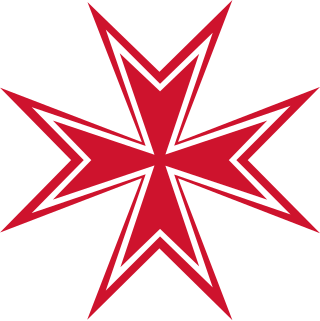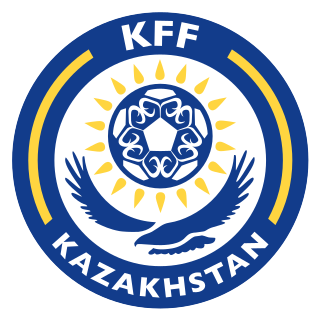
The Liechtenstein national football team is the national football team of the Principality of Liechtenstein and is controlled by the Liechtenstein Football Association. The organisation is known as the Liechtensteiner Fussballverband in German.

The Andorra national football team represents Andorra in men's international football and is controlled by the Andorran Football Federation, the governing body for football in Andorra. The team has enjoyed very little success due to the Principality's tiny population, the fifth smallest of any UEFA country.

The North Macedonia national football team represents North Macedonia in men's international football, and is administered by the Football Federation of Macedonia. The team play their home matches at the Toše Proeski National Arena in Skopje.

The Slovakia national football team represents Slovakia in men's international football competition and it is governed by the Slovak Football Association (SFZ), the governing body for football in Slovakia. Slovakia's home stadium from 2019 is the reconstructed Tehelné pole in Bratislava. Historically, up to the split in 1993, the team participated mostly as Czechoslovakia, while it also competed as Slovakia during World War II.

The Poland national football team represents Poland in men's international football competitions since their first match in 1921. It is governed by the Polish Football Association (PZPN), the governing body for football in Poland. They are known by the nicknames "The White-Reds" and "The Eagles", symbolized by their coat of arms featuring a white eagle on a red background. The team reached their peak World Ranking of 5th in 2017. Poland's home ground is the Kazimierz Górski National Stadium in Warsaw. The current head coach is Michał Probierz.

The Slovenia national football team represents Slovenia in men's international football and is controlled by the Football Association of Slovenia, the governing body for football in Slovenia. The national squad is under the global jurisdiction of FIFA and is governed in Europe by UEFA. It competes in the three major professional tournaments available to European nations: the FIFA World Cup, UEFA Nations League and the UEFA European Championship. Slovenia played its first official match in 1992, one year after the country gained independence from Yugoslavia. The majority of Slovenia's home matches are played at Stožice Stadium in Ljubljana.

The Iceland national football team represents Iceland in men's international football. The team is controlled by the Football Association of Iceland, and have been a FIFA member since 1947 and a UEFA member since 1957. The team's nickname is Strákarnir okkar, which means Our Boys in Icelandic.

The Malta national football team represents Malta in men's international football and is controlled by the Malta Football Association, the governing body for football in Malta.

The Moldova national football team represents Moldova in men's international football and is administered by the Moldovan Football Federation, the governing body for football in Moldova. Moldova's home ground is Zimbru Stadium in Chișinău and their head coach is Serghei Cleșcenco. Shortly before the break-up of the Soviet Union, they played their first match against Georgia on 2 July 1991.

The Kazakhstan national football team represents Kazakhstan in men's international football and it is governed by the Kazakhstan Football Federation. They split from the Soviet Union national team after independence in 1991 and joined the Asian Football Confederation's Central Asian Football Federation. After failing to qualify for the 1998 and 2002 FIFA World Cups, they joined UEFA, but are yet to qualify for a FIFA World Cup or a UEFA European Championship.
The Israel women's national football team represents Israel in international women's football. The Israel women's national football team was established in 1997. Women's football in Israel was developed as an upside down pyramid by first opening the national team and then after 2 years opening the first women's football league in Israel. Women's Football in Israel is struggling to develop because it is lacking investment.

The Latvia women's national football team represents Latvia in international football and is controlled by the Latvian Football Federation, the governing body for football in Latvia. They have never qualified for the major tournament.
The Republic of Ireland national under-19 football team, is the national under-19 football team of the Republic of Ireland and is controlled by the Football Association of Ireland and competes in the biennial European Under-19 Football Championship.

Manja Rogan is a Slovenian professional footballer who plays as a midfielder for Première Ligue club FC Nantes and the Slovenia women's national team. Rogan started her senior career with WFC Pomurje in 2009.

The EuroBasket 2025 qualification is a basketball competition that is being played from November 2021 to February 2025, to determine the 20 FIBA Europe member nations who will join the automatically qualified co-hosts Cyprus, Finland, Poland and Latvia at the EuroBasket 2025 finals tournament.
The Finland women's national futsal team represents Finland in international futsal competitions and is controlled by the Football Association of Finland.
The Poland women's national futsal team represents Poland in international women's futsal and is controlled by the Polish Football Association.
The Netherlands women's national futsal team represents the Netherlands in international women's futsal, and is directed by the Royal Dutch Football Association (KNVB).
The England women's national futsal team represents the England in international women's futsal competitions. It is governed by Futsal England in partnership with The Football Association.
The Bosnia and Herzegovina women's national futsal team represents Bosnia and Herzegovina in international futsal competitions and is controlled by the Football Association of Bosnia and Herzegovina, the governing body for futsal in the country.












